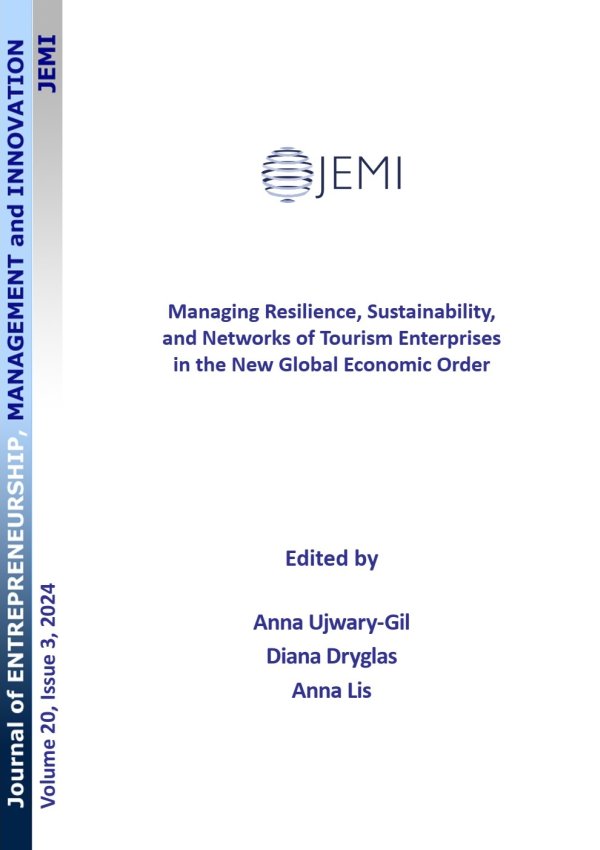Assessing sustainable practices and managerial approaches in the hotel industry: A comparative case study
Assessing sustainable practices and managerial approaches in the hotel industry: A comparative case study
Author(s): Jitka Vávrová, Lenka Červová, Blanka Brandová, Jorge PachecoSubject(s): Business Economy / Management, Tourism
Published by: Fundacja Upowszechniająca Wiedzę i Naukę "Cognitione"
Keywords: sustainability; sustainable development; practices; hotel industry; hospitality industry; tourism; management;
Summary/Abstract: The study is comparative, comparing sustainable practices and approaches in two hotels to better understand different management approaches. The study’s design provides valuable insights into the topic of sustainability practices in the hotel industry, and the results are analyzed and discussed in the context of existing academic knowledge on the issue. METHODOLOGY: The goal of the selection process was to find information-rich cases. After conducting initial online research, two four-star hotels in the same regional capital city in the Czech Republic were intentionally chosen. These hotels are direct competitors and have very similar target customers. To collect data, the authors conducted two separate semi-structured, in- depth interviews with the CEOs of both hotels, as well as observations in both establishments and additional interviews with staff. The interview protocol, which is innovative and newly assembled, was added to ensure the case study’s reliability and enable future comparisons. A comprehensive criterion table methodically presents the research outcomes. FINDINGS: Besides the list of sustainability practices applied in the hotels under study, the authors described two distinct management approaches. The first approach takes a broad perspective, considering all aspects of sustainability and incorporating it as a fundamental part of the company’s vision. In contrast, the second approach focuses narrowly on cost savings and profit generation. The form of business is the critical factor responsible for the difference in managerial approach. Interestingly, the study suggested that hotels belonging to large chains (and stock companies) may be more compelled to adopt sustainability practices and may have more established sustainability programs than independent hotels. IMPLICATIONS: In light of previous literature, the findings of this case study provide valuable theoretical contributions to managerial approaches to sustainability programmes, sustainability reporting, transparency, and more. Additionally, the newly assembled interview protocol is an innovative and important foundation for future research. The study also uncovers significant new barriers to the adoption of sustainability practices. From a managerial perspective, this study offers a comprehensive overview of hotels’ sustainability practices and serves as a practical list of potential sustainable practices for hotels to consider. Finally, the conclusion provides suggestions for future research that can further advance sustainable practices in the hotel industry. ORIGINALITY AND VALUE: The study’s significance stems from a thorough analysis of prior literature and conducting additional research in a new setting, providing a unique perspective on the topic of hotel sustainability within a specific area. The case study approach allowed for an in-depth examination of the selected cases, with attention to detail. The methodology and public interview protocol offer the potential for comparable studies in otherregions to be conducted and compared in the future.
Journal: Journal of Entrepreneurship, Management and Innovation
- Issue Year: 20/2024
- Issue No: 3
- Page Range: 46-61
- Page Count: 16
- Language: English

